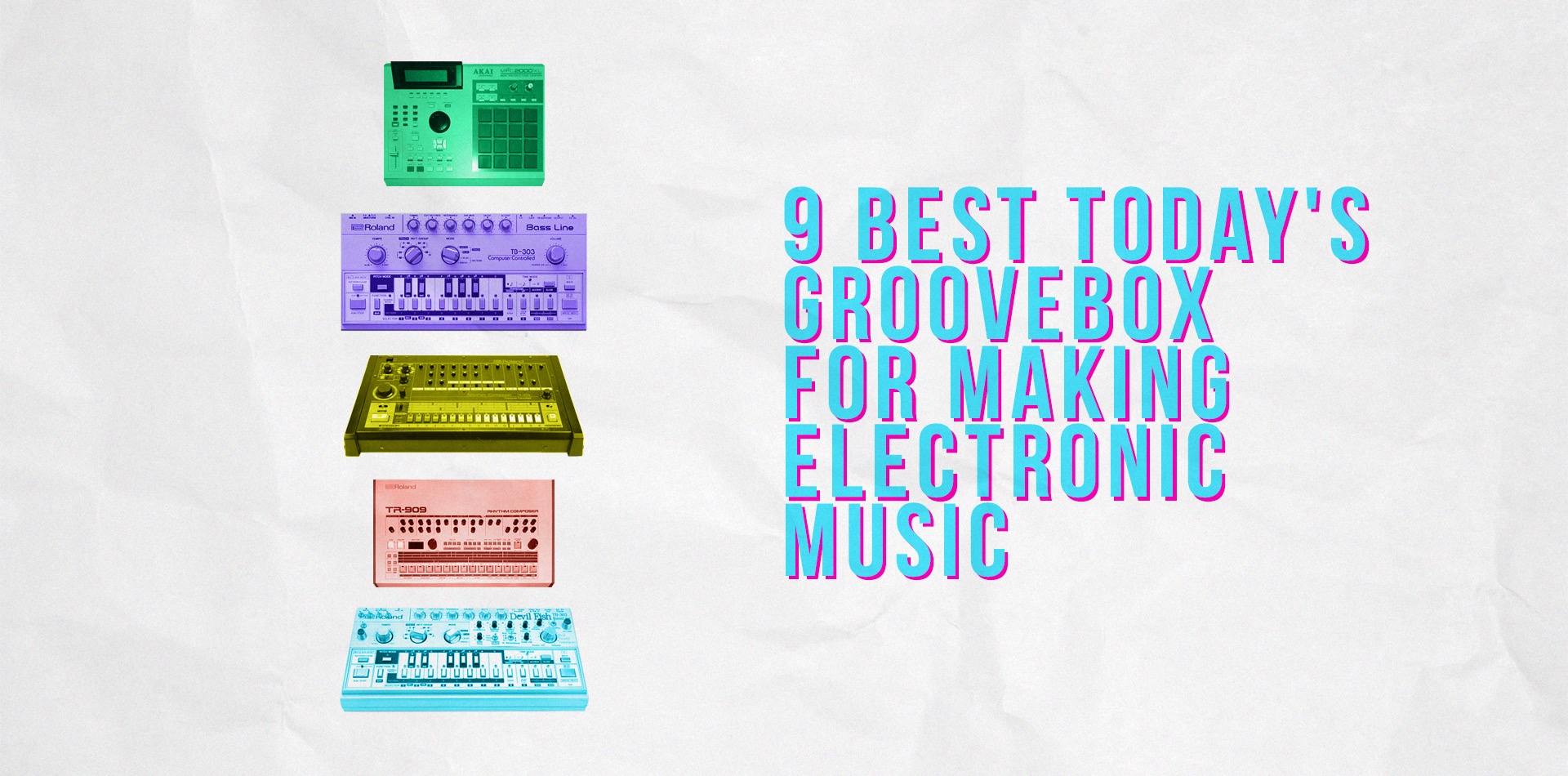Edit: Just added one more Groovebox (Korg Electribes) thus making the list to 10 of Best Today’s Grooveboxes for Electronic Music.
Initially released as a commercial failure, Roland drum machines like TR-808, TR-909, and bassline TB-303 was released as a synth-based, affordable alternative to a Linn drum computer which using real samples. Forget about the today’s EDM craze, but these are the technology who give rise to early development of Electronic Music, the synthetic-unrealistic drum sounds give birth to early electronic music genres like acid, house, and techno. Thus, the further development of grooveboxes a.k.a. music workstation are a main inspiration behind today’s computer based DAWs. Started by Korg Volcas in the 2010s, the groovebox craze started again then begin to be placed alongside DAWs to become essential in the electronic music or modern music production as a music instruments in their own right. It’s hard to find the vintage ones, but why not try the modern incarnations? here’s the list of the modern Grooveboxes:
Roland Aira Series
$199-$599 each
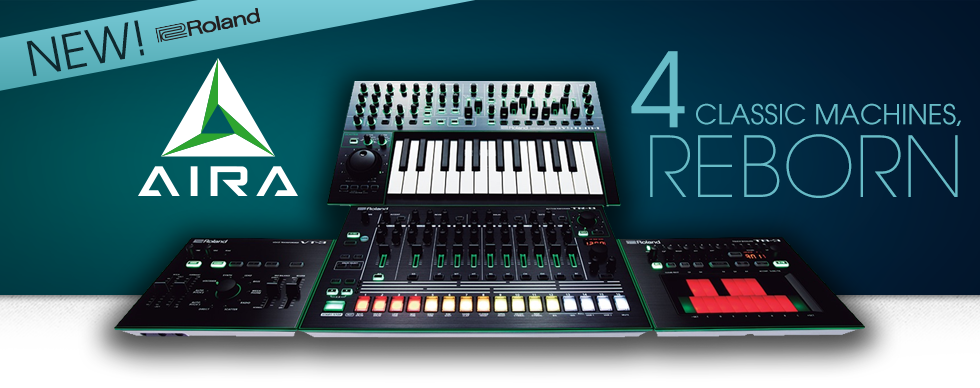
Roland Aira. Source: samash.com
Roland is the pioneer of making grooveboxes since the 80’s, they even the one who created the legendary grooveboxes who defines Electronic Music: the x0x (x stands for numbers) Boxes, namely, TR-909, TR-808, and TB-303. After that, they followed up a decade later with the release of the MC-x0x grooveboxes and SP-x0x samplers. Today, they “re-invent” those products with a modern twist, the Aira Series, which recreates the vintage sounds with Roland’s patented ACB (Analog Circuit Behavior) technology who promises to accurately emulates the quirks and naturality of their vintage gear using new digital technology, all with a modern interface. e.g. touchpad.
KORG Volca Series
$169 each
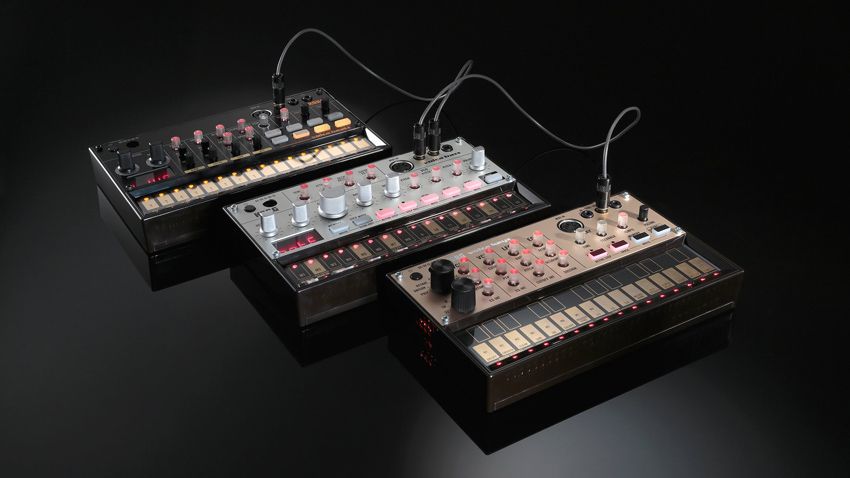
Korg Volcas. Image Source: Pinterest
The affordable, real analog, compact grooveboxes who restart the groovebox craze during these past years, know for its affordable, portable, real analog sound. To date, Korg Volca already released five products to fill many electronic music performing necessities, namely: Volca Beats (drum synth), Volca Bass (monophonic bass synth), Volca Keys (subtractive polyphonic synth), Volca Sample (sample drum machine), Volca FM (FM polyphonic synth), Volca Kick (kick drum oriented synth), and Volca Mix (mixer for Volcas). With it’s fat, real analog sound quality, Volcas quickly gather attention of strong userbase despite many limitations (e.g. sequencer) perfect forpeople who just started out jamming electronic tunes or professionals who look for a gear to complement their existing setup.
Korg Electribe 2
$399 each
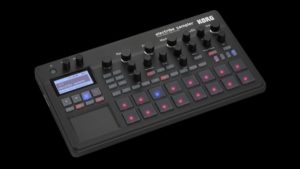
Image Source: CreateDigitalMusic
*edit* our user, Sam D, replied to ask why Electribes didn’t included, and gives his opinion regarding the 2nd generation of Electribes: “I think for the price they are fantastic. The synth engine is great and comes with filters taken from the KingKORG keyboard (E2 synth version only). You can get up to 16 voices (but in reality it’s closer to 10-12 voices before hitting a wall (i.e voice dropping). The step sequencer comes with a Step Edit mode, which is basically a tracker. You also get per part modulation, insert fx and a master fx (controlled with a mini kaoss-pad like touch panel). So you can go really creative with it and make all sort of music, ambiant, experimental, techno, trip-hop and so on.”
Korg Electribes is the successor of a series Korg’s Electribes who previously head-to-head with Roland’s MC and SP-x0x Grooveboxes. The updated MK2 or simply the “2” series have two kind of “flavors”, the synth-based one and the sample-based one, called Electribe 2 Sampler. Basically both are a medium priced, all-in-one grooveboxes packed with Korg’s newest digital synth engines.
Elektron
$739-$1549 each

Image Source: Youtube.com Christoper Kah
The high-end, modern take of Grooveboxes which emphasizes the forward thinking, progressive experimentation of electronic music. Elektron also jump-started the groovebox craze during their early releases of Monomachine and Machinedrum for a higher-end market praised for it’s quality, but its high price making it a bit difficult to appeal to a larger audiences. Still, Elektron have their own niche with it’s strong, fanatic userbase gathered in the Elektronauts forum. Their product development team also seemed to be really active too… with the new releases of Digitakt(drum/sampler) and Digitone (FM synth) and the Overbridge technology for syncing the Elektron with DAW such as Ableton or Cubase.
Novation Circuit
$329

Image Source: Youtube.com Novation // Circuit
Circuit comes out as a follow up from Novation Launchpad grid concept for the standalone world, started out not to interesting with strange concepts (8 knobs without labels), limited sounding digital synth (apparently derived from the nova series), and only four-part of drum synth. But they prove that a rock-solid development team can bring a massive turnaround with the release of series of free updates (reaching 1.6 firmware update when this article written), bringing more refinements and experience changing features like: sample import, midi cc send/receive, panning, sample flip, microsteps, etc. Interesting. Circuit proves that it can be both simple and powerful at the same time, their 64 steps built-in sequencer itself is powerful with many additional features perfect for a quick sketching ideas or as a master sequencer for outboard synths. They have a solid community too.
Akai MPC
$199-$2199
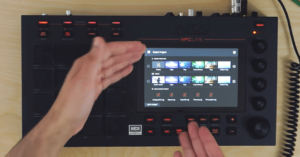
Image Source: Synthopia.com
The ultimate weapon of vinyl sampling aficionado, beatmaking and finger drumming producers who defines the swinging spirit of hip-hop culture. Akai’s vintage ones are a classic in their own right, and really sought after by purists for their strong “MPC sound”. Nowadays, they released the computer powered ones and both the standalone ones which is a killer feature for many users who want to take out laptop from their performance setup. But, after a bit of lurking in many forums, the newer MPCs like Touch or Live seemed to suffer with a buggy software and slow release of updates. They also have a line of compact analog grooveboxes which also worth to check out like Tomcat and Rhythm Wolf.
Native Instruments Maschine
$299-$799
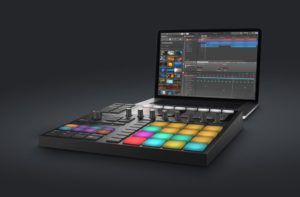
Image Source: NativeInstruments.com
The digital reincarnation of MPC from a pioneering VST instrument developer; Native Instruments. Despite having a fatal cons as not being able to used standalone, Maschine positioned itself as a hardware-software workstation, take advantage of Native Instruments expertise in the software world by having this full fledged benefits: all-in-one set of features, great sounding expansions, sync features with both other NI products like Traktor and/or 3rd parties, and mature, solid development team which always keeps up Maschine with important new features. Their latest one, the MK3 is also equipped with built-in soundcard which really simplifies the setup for any computer-based electronic musicians. The ability to load-up 3rd party VSTs like Kuassa’s is also a major advantage too… we will show you how to load-up Kuassa VSTs in the next article.
Arturia Brute Series and Step Series
$119 to $649
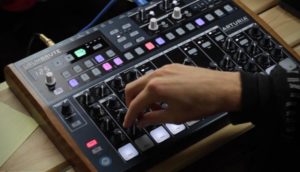
Image Source: DJTechTools.com
Like Native Instruments, Arturia is also known for their successful diversifications to the hardware products, but they are more on a analog side a.k.a. the new-old. For example, their popular compact hardware sequencers like Keystep and Beatstep having a great advantage to sync and sequence vintage synth or grooveboxes like the Arp Odyssey or Roland TR-808. They also have compact analog synth which is really popular like the Minibrute and Drumbrute.
Nord Drum
$699
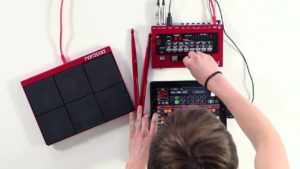
Image Source: Youtube.com Nord
Not really a groovebox though, but it really great sounding and able to a really quirky experimentation techno party as expected from Nord, and you can turn it to a groovebox using their free iPad app in addition of their percussion pads.
Dave Smith Tempest
$1.999
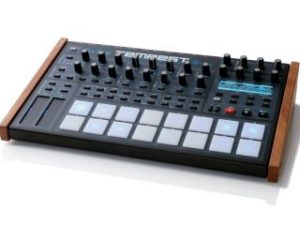
Image Source: Musicradar.com
Apart from great sounding analog synths, Dave Smith designs Tempest with Roger Linn (the designer of MPC and many innovative instruments); a great sounding groovebox with full analog goodness. If you are an analog aficionado and it justifies you to pay $1.999, get this one! won’t fail to impress anyone.


